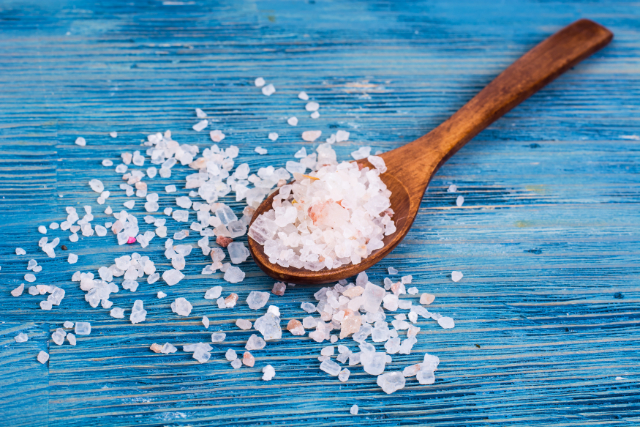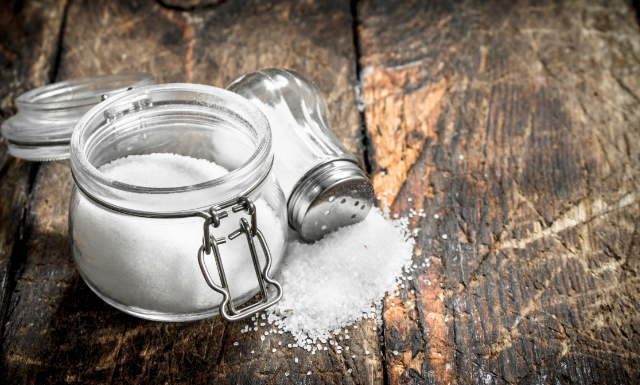Rein in the Salt When Preparing Food

Salt is one of the most widely used seasonings in the world. It intensifies flavors, balances out the sweetness and can make bland dishes come to life. Cooks from all skill levels use salt and once you're accustomed to sprinkling it in, it can be a hard habit to shake off. It's true salt imparts a lot of zing to a recipe, but too much of a good thing can work against you. Here are a few downsides of working with salt and how you can avoid the pitfalls.
Cooking Ahead
When cooking for large groups or preparing food for later use, it's important to factor in any warming periods or plans for reheating. This is because the heating process causes the liquids in food to evaporate, which intensifies flavors, especially saltiness. That means dishes can become over-salted with prolonged heating time.
The solution? Go easy with salt at the start of preparing food. Toss in a pinch to sweat the onions or another to kick off a pot of stock, but that should be plenty. It's important to wait until the tail-end of cooking before seasoning your dish to taste. If the dish will be held for warming or reheated later, you'll need to back off. It's best to err on the side of too little than to overdo it.
Different Tastes
Some people like their food bold and savory while others have more sensitive palates. When you're cooking for a crowd, you'll have an array of taste buds to please. Learn about the guests and how you'll be preparing the food, then season accordingly. When in doubt, remember that less is more. If the rest of your seasonings work well, a lack of salt will be easily overlooked.
Health issues
Young people have fewer health concerns than the elderly. Folks with ailments like heart conditions can be badly affected by too much sodium in their meals. Take this into account when catering an event or gathering. If the majority of attendees are over 55, you may choose to ditch the sodium altogether. Instead, use other seasonings to compensate. A full spectrum of flavors is possible with herbs and spices and when there is enough flavor from other sources, a low-sodium menu is preferable to health-conscious people.
While salt is a culinary heavyweight, the world is embracing alternatives. When warming periods are involved, pull back on salt when preparing food to avoid over-salting. It's always better to offer a choice. After all, isn't that what salt shakers are for?
Do you cook for groups often? Contact us for information about our commercial line of cook and hold products.

Posted in: Cooking Tips & Recipes